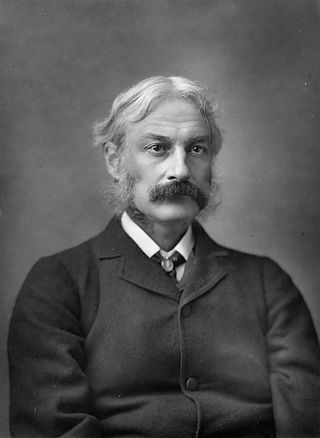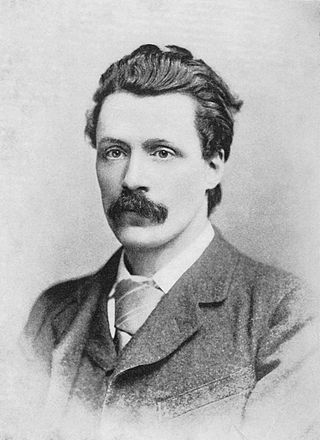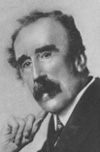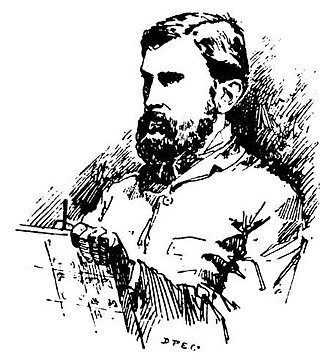
Edwin Austin Abbey was an American muralist, illustrator, and painter. He flourished at the beginning of what is now referred to as the "golden age" of illustration, and is best known for his drawings and paintings of Shakespearean and Victorian subjects, as well as for his painting of Edward VII's coronation. His most famous set of murals, The Quest and Achievement of the Holy Grail, adorns the Boston Public Library.

Andrew Lang was a Scottish poet, novelist, literary critic, and contributor to the field of anthropology. He is best known as a collector of folk and fairy tales. The Andrew Lang lectures at the University of St Andrews are named after him.

The English novel is an important part of English literature. This article mainly concerns novels, written in English, by novelists who were born or have spent a significant part of their lives in England, Scotland, Wales, or Northern Ireland. However, given the nature of the subject, this guideline has been applied with common sense, and reference is made to novels in other languages or novelists who are not primarily British, where appropriate.
This article contains information about the literary events and publications of 1842.
This article contains information about the literary events and publications of 1834.

George Robert Gissing was an English novelist, who published 23 novels between 1880 and 1903. His best-known works have reappeared in modern editions. They include The Nether World (1889), New Grub Street (1891) and The Odd Women (1893).

Ferguson Wright Hume, known as Fergus Hume, was a prolific English novelist, known for his detective fiction, thrillers and mysteries.

William Wymark Jacobs was an English author of short fiction and drama. His best remembered story is "The Monkey's Paw". He was born in Wapping, London, on 8 September 1863, the son of William Gage Jacobs and his wife Sophia, née Wymark. His father ran the South Devon wharf at Lower East. William and his siblings were still young when their mother died. Their father then married his housekeeper and had seven more children. Jacobs attended a private London school before Birkbeck College, where he befriended William Pett Ridgcap.

Arthur St John Adcock was an English novelist and poet, known as A. St John Adcock or St John Adcock. He is remembered for his discovery of the then-unknown poet W. H. Davies. His daughters, Marion St John Webb and Almey St John Adcock, were also writers.
This is a list of the books written by G. K. Chesterton.

Arthur George Morrison was an English writer and journalist known for realistic novels, for stories about working-class life in the East End of London, and for detective stories featuring a specific detective, Martin Hewitt. He also collected Japanese art and published several works on the subject. Much of his collection entered the British Museum, through purchase and bequest. Morrison's best known work of fiction is his novel A Child of the Jago (1896).

William Pett Ridge was an English fiction writer, born at Chartham, near Canterbury, Kent, and educated at Marden, Kent, and at the Birkbeck Institute, London. He was for some time a clerk in the Railway Clearing House, and began about 1891 to write humorous sketches for the St James's Gazette and other papers.

William John Locke was a British novelist, dramatist and playwright, best known for his short stories.

Percy Hetherington Fitzgerald was an Anglo-Irish author and critic, painter and sculptor.
This article is focused on English-language literature rather than the literature of England, so that it includes writers from Scotland, Wales, and the whole of Ireland, as well as literature in English from former British colonies. It also includes, to some extent, the United States, though the main article for that is American literature.
Thomas Edgar Pemberton was an English novelist, playwright and theatrical historian.

William Heysham Overend was a notable British marine artist and book illustrator who died prematurely in 1898.












